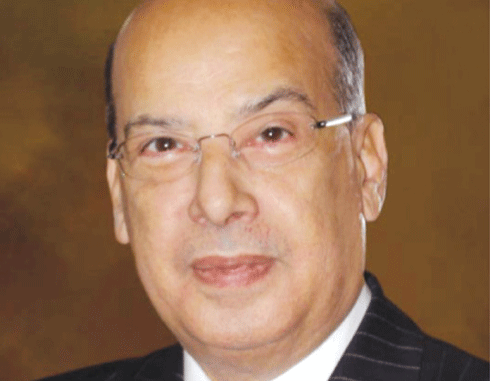Washington, DC, May 14….Antigua and Barbuda’s Ambassador to the United States, Sir Ronald Sanders, today urged that the US government and Congress seek an extension of a waiver to allow Caribbean countries to continue to benefit from the Caribbean Basin Economic Recovery Act (CBERA).
Ambassador Sanders testified before the U.S. International Trade Commission which is conducting an investigation into the impact on US industries, persons and the US economy of CBERA that was enacted in 1983.
CBERA is part of the Caribbean Basin Initiative, launched by then US President Ronald Reagan and kept in place by successive US governments.
Sir Ronald pointed out that CBERA and the Caribbean Basin Trade Partnership Act (CBTPA) which grants preferential access for Caribbean exports to the US market is only possible because of a waiver from the World Trade Organisation.
That waiver expires at the end of tis year on December 31st.
Sanders told the Commission that, over the years, the US has benefited more from the existing trade arrangements than the 17 Caribbean countries for whom benefits were intended.
He testified that the US has enjoyed years of trade surpluses with the Caribbean countries. In 2018, the US benefitted by a surplus of US$12 billion.
Despite this, Ambassador Sanders argued that seven Caribbean CARICOM countries that are the principal beneficiaries of CBERA “would face serious financial challenges if they were to lose the preferential access from which they now gain”.
“The resultant weakening of the economies of these countries would have a harmful effect on the region by spill-over effects into neighbouring states, including the U.S.”, he said.
The Antigua and Barbuda Ambassador also called for CBERA benefits to be applied to trade in services. He explained that the economies of most of the CBERA countries are services-based, accounting for more than 75 percent of employment and 66 per cent of total output.
Sir Ronald concluded that: “Based on the inter-relationship between U.S. and Caribbean industries, including banking, tourism, air and maritime transport, accountancy and auditing, health and education, a relationship could be developed exponentially, creating new jobs, new sources of revenue and increasing opportunities for prosperity”.
The Commission took account of the Ambassador’s testimony which will be included in its report to the U.S. Congress and the President.











![.[L-R] Parliamentary Representative for Castries Southeast, Lisa Jawahir & Talk show host, Timothy Poleon](https://thevoiceslu.com/wp-content/uploads/2026/02/Lisa-Jawahir-Timothy-Poleon-380x250.jpg)
![Public Service and Utilities Minister Stephenson King delivered remarks [Photo credit: VP]](https://thevoiceslu.com/wp-content/uploads/2026/02/Stephenson-King-380x250.jpg)

